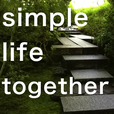
Summary: You've Got Plenty of Time, and Where Do I Start?<br> You can't buy time. Some may want you to think you can, but you can't. Time is most likely the most democratized asset we have. As we live our lives, it doesn’t matter who rich or how poor you are, we all get the same amount: 24 hrs in a day 168 hours in a week, 365 days a year...and so on. It doesn’t matter if you’re the wealthiest person in the world, none of your wealth can buy you one more minute of time.<br> <br> <br> <br> So how do you get on track to really making the most of the time you have? Knowing where to start sure helps! Well, it's time to take charge! Read more...<br> <br> <br> <br> <br> Dan's Topic: You've Got Plenty of Time<br> So again, you can't buy time. Sure, there are ways to pay others to do things you don’t want to do, and we all do that. We buy our vegetables already picked, our meats butchered, and some foods prepared. And that does allow us time to do other things, but that time is filled with something else. And that’s where I’d like to focus today...how we choose to structure that time. We certainly structure how we spend our money, but often leave how we structure our time to chance.<br> So, today I’d like to share some of my own definitions about time and how I’m trying to be a bit more careful with how I spend and structure my time in case you were considering that yourself. So, I’ll put a few things out there for you to think about if you’re looking at being a bit more mindful of your time as you simplify, as well.<br> So, since we can't really buy "more" time, we should certainly allocate how we spend the time we do have. And as we go through this I'm going to define some terms that I set up for myself as a framework. Now these are my definitions so they're not set in stone. You can certainly opt to define them more stringently or more loosely or however you want. It's your time, your world, right?<br> So, I’ll go through my definitions first, and then we’ll break things down just a bit, OK?<br> The first term is HABIT: I think of habits as simple tasks that have become almost completely automatic. Do you really think about how you brush your teeth in the morning or in the evening? Probably not...you just do it automatically. But there was a time when you did have to think about it, right?<br> <br> <br> Remember when your Mom or Dad first let you brush your own teeth?<br> <br> Or those little red pills that highlighted plaque? We got those from the hygienist at school<br> <br> <br> Measured your effectiveness at the task<br> <br> <br> Quickly became automatic<br> <br> <br> Well, lot’s of things we do, we do out of habit. And we’ll get back to habit’s and all these definitions in a little bit.<br> The next term is ROUTINE: Like a habit, a routine is also automatic, but often a system of many habits. If brushing your teeth is a habit, the things you do to “get ready for life” life in the morning is probably a routine. A typical morning hygiene might consist of:<br> <br> <br> <br> Showering<br> <br> <br> Brushing and flossing teeth<br> <br> <br> Doing your hair<br> <br> <br> Putting on makeup<br> <br> <br> When I was in the military, at the unit level when we were in the field, we also had “routines”, such as “Routines in Defense” where it was scheduled when weapons were cleaned, camouflage was replaced, communications were checked, etc.<br> OK, the next one I want to cover is RITUAL: Mindful act or actions that have an overarching benefit. I think of a ritual as much like a routine, but something you’re much more mindful and appreciative of, and where you derive some benefit or satisfaction by doing it. In my opinion, the ritual is the sweet spot...it’s something that needs to be done that you enjoy and are better for doing. My goal is to see what routines I can convert into rituals.
